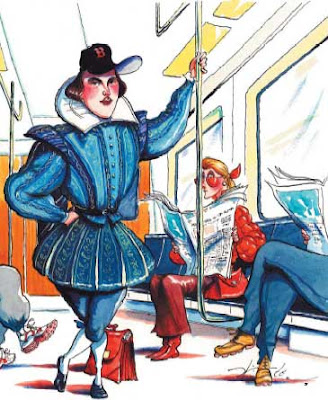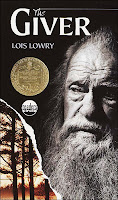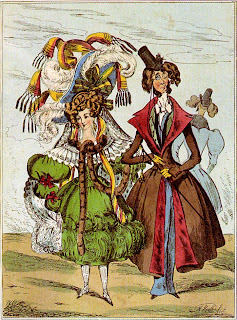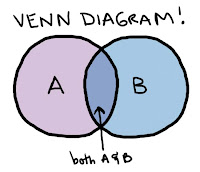
Tuesday, November 30, 2010
Crazy Little Thing Called Love

A Man's Dilemma

Monday, November 29, 2010
Gold Digger

You Got Mail

Monday, November 22, 2010
Zuleta's Hands

Thursday, November 18, 2010
Men Men Menly Manly Men Men Men....
HELP:

Monday, November 15, 2010
Delicate Diction

Ok so here we were reading about incest, family murders, apocalyptic cannibals, satanic music, prostitutes, and alcohol and suddenly now we begin to read about some poofy-dressed, fancy speaking, english women??? Ok.... so either Mr. Tangen is going through some type of personality crisis or he misspelled the name of the book we were supposed to be reading...
Sunday, November 7, 2010
Death and Skull

Monday, October 25, 2010
Crazy
 Ok so here I am reading Hamlet and watching David Tennant's Hamlet on YouTube and once again I'm faced with the same question that has been bothering me from the beginning of the whole play.
Ok so here I am reading Hamlet and watching David Tennant's Hamlet on YouTube and once again I'm faced with the same question that has been bothering me from the beginning of the whole play. Sunday, October 24, 2010
Buddies, buddies, buddies!
 No matter what kind of person one is, no matter what beliefs one holds true, no matter whether one is good-hearted or bad, one will always have someone who will be there to accompany oneself through one's endeavors. Friendship is important. We all need people who will be with us in the good times and in the bad. For Hamlet, this remains true. Although in most of the play he is depicted as a very solitary and absorbed character with all his long and intricate soliloquies, he still has a companion that is with him through all his troubles. This person is Horatio.
No matter what kind of person one is, no matter what beliefs one holds true, no matter whether one is good-hearted or bad, one will always have someone who will be there to accompany oneself through one's endeavors. Friendship is important. We all need people who will be with us in the good times and in the bad. For Hamlet, this remains true. Although in most of the play he is depicted as a very solitary and absorbed character with all his long and intricate soliloquies, he still has a companion that is with him through all his troubles. This person is Horatio. Wednesday, October 13, 2010
Analyze This!

Wednesday, October 6, 2010
Active Voice
- The statue is being visited by hundreds of tourists every year.
- My books were stolen by someone yesterday.
- These books had been left in the classroom by a careless student.
- Coffee is raised in many parts of Hawaii by plantation workers.
- The house had been broken into by someone while the owners were on vacation.
- A woman was being carried downstairs by a very strong firefighter.
- The streets around the fire had been blocked off by the police.
- Have you seen the new movie that was directed by Ron Howard?
- My car is in the garage being fixed by a dubious mechanic.
- A great deal of our oil will have been exported to other countries by our government.
An Actor's Alternative
 In theater and in movies, the script gives a certain amount of space for the actors to interpret their roles and create their own characters based on the way that they see in the person they are representing. As we can see on both of the videos posted on Mr. Tangen's blog, many times actors interpret their roles very differently even though their roles are based on the same plot, dialogue, etc...
In theater and in movies, the script gives a certain amount of space for the actors to interpret their roles and create their own characters based on the way that they see in the person they are representing. As we can see on both of the videos posted on Mr. Tangen's blog, many times actors interpret their roles very differently even though their roles are based on the same plot, dialogue, etc...Sunday, October 3, 2010
Response To Rachel's Blog
Krapp's Dilemma
 I think we all suffer from having good times and bad. Yeah, that's right. We suffer because of all the ghastly GOOD times and the brilliant BAD ones.
I think we all suffer from having good times and bad. Yeah, that's right. We suffer because of all the ghastly GOOD times and the brilliant BAD ones.- "In order for there to be a good moment, there must be a bad moment to make it so."
- "All good things must come to an end."
- "What goes up, must come down."
Sunday, September 26, 2010
Ubiquitous Shakespeare

Tuesday, September 21, 2010
Response

Monday, September 20, 2010
DreamZzZzZzZzzz...

Dreams. They're everywhere and they seem to be one of the few things that humans still haven't been able to fully understand. Some people think of dreams as the way our subconscious desires are made tangible, others think of dreams as the means by which we are given messages from beyond the grave. Everyone interprets their dreams differently and we can see in The Road that the father interprets his dreams as a type of warning. On page 18, Cormac McCarthy writes, "He (father) said that the right dreams for a man in peril were dreams of peril and else was the call of languor and of death." We can see that in his situation, the Father had to interpret his dreams as warnings in order to stay alert in the world that he lived in.
Sunday, September 19, 2010
Doorman's Tale
 Friends, now it is my turn to tell my tale
Friends, now it is my turn to tell my taleSunday, September 12, 2010
What's Going On?
- Woman, Man, and Child were survivors of some cataclysmic event on Earth
- Woman suicides because loses faith in her existence (most likely shot herself with the pistol)
- There are other survivors that would "rape, kill, then eat" the Man, Woman, and Child (maybe zombies?)
- The Child was not wanted by mother
Saturday, September 11, 2010
2012?

What a strange novel. I mean, personally I think that in the last few years directors, authors, writers, producers, EVERYONE has gone "apocalypse crazy." There have been hundreds of movies about aliens, zombies, climate change, devil-children, etc. in the last few years and I'm sort of tired of it. All of these incredibly original and genuine tales all have the same clear and concise message: we're fckd.
Monday, September 6, 2010
What Drives Us
DRAFT #2 FOR ESSAY ON GG AND CTS
Passion moves people. It drives humanity and it acts as an instigator for human actions and choice. Both Fitzgerald, in his novel The Great Gatsby, and Ondaatje, in Coming Through Slaughter, use symbols such as the green light and the cornet to portray the passions of both Bolden and Gatsby and how these led to their demise.
A symbol that Fitzgerald uses is the green light that Gastby could see across the bay from his house. This green light, which Gatsby stares at for hours on end from his house, symbolizes the love and wanting that Gatsby has for Daisy. The light stands for the hope that Gatsby has that one day he will meet Daisy again. Although Gatsby may have never acted on this urge to meet personally with Daisy after living close to her for so long, the green light is a physical representation of the still-present and burning love that he feels. Fitzgerald also leads us to realize that although our passions are wonderful things, they are strong and can lead us to misery and strife. We can clearly see that Gatsby’s acting on his passions ultimately led to the death of an innocent woman.
Ondaatje takes on a slightly different approach to this subject of passions. In his novel Coming Through Slaughter, Buddy Bolden is a character who seems to lead a double life. In one life, he is the average barber and on the other, he is an alcohol-drinking, prostitute-loving musician. Ondaatje makes Bolden’s passion be the music, in this case his cornet. In the beginning of the novel, we are shown a stark contrast between both of Bolden’s personalities and we are shown that when he performs, he reaches a completely higher level of being. Slowly, as the plot progresses, we can see that the passions in Bolden’s life are systematically driving him mad. Although his music was incredible, with his eccentric shows and mind-boggling mixes between gospel hymns and blues, it degenerated him. His passions ultimately let to his insanity.
As I have clearly demonstrated, both Fitzgerald and Ondaatje use symbols in their novels to show us the powerful, yet dangerous qualities of our passions. You can see it as either Gatsby’s green light or as Bolden’s cornet. Both authors are trying to show us that our passions move us wether we want them to or not, the important thing is being able to maintain control.
Sunday, September 5, 2010
Satire!
 This section of The Canterbury Tales, written by Chaucer, reminds me of what I've studied regarding the Protestant Reformation. The Protestant Reformation was a Christian reformation movement which denounced the Church's abuses (selling of indulgences- "The Pardoner's Tale) and resulted in a schism within the church. This movement began in 1571 and ended in 1648. I've done a little bit of research and I found that The Canterbury Tales were written at the end of the 14th century. This means that the Protestant Reformation had not begun yet in Europe. This leads me to believe that this book is a satire. It has all aspects of satire which we studied last year in our Pre-AP English course and is clearly proposing a social commentary that targets the vices of Europe in the end of the 14th century.
This section of The Canterbury Tales, written by Chaucer, reminds me of what I've studied regarding the Protestant Reformation. The Protestant Reformation was a Christian reformation movement which denounced the Church's abuses (selling of indulgences- "The Pardoner's Tale) and resulted in a schism within the church. This movement began in 1571 and ended in 1648. I've done a little bit of research and I found that The Canterbury Tales were written at the end of the 14th century. This means that the Protestant Reformation had not begun yet in Europe. This leads me to believe that this book is a satire. It has all aspects of satire which we studied last year in our Pre-AP English course and is clearly proposing a social commentary that targets the vices of Europe in the end of the 14th century.
The Raven
 In Edgar Allan Poe's poem The Raven, we can see a perfect example of the use of symbolism. The raven that is "perched upon a bust of Pallas" is a representation of the memory that was Lenore. The raven, a bird of ill-omen, also symbolizes death or the ending of a cycle. Using this information, we can deduce that perhaps what has happened is that the narrator has lost Lenore. We can't be sure whether she has died or perhaps she has left him, but we do know because of the desolate and grim tone that there has been a significant event that has hurt the relations between narrator-Lenore.
In Edgar Allan Poe's poem The Raven, we can see a perfect example of the use of symbolism. The raven that is "perched upon a bust of Pallas" is a representation of the memory that was Lenore. The raven, a bird of ill-omen, also symbolizes death or the ending of a cycle. Using this information, we can deduce that perhaps what has happened is that the narrator has lost Lenore. We can't be sure whether she has died or perhaps she has left him, but we do know because of the desolate and grim tone that there has been a significant event that has hurt the relations between narrator-Lenore.
Thursday, September 2, 2010
We're All F****d
 elieve that God has ordered them to kill, others believe that He has ordered them to give up all of their belongings, others believe that the second coming of Jesus has already come (Vissarion), etc. The point is, throughout time people have had hundreds (if not thousands) of beliefs and the amusing thing is that they actually base their sometimes absurd beliefs on documented and biblical documents. Because of these beliefs things like the crusades, the holocaust, and the genocides in Darfur and Rwanda have been occurring. There has been intolerance and discrimination ever since the beginning of human civilization and we can clearly see examples of these innate and dark human tendencies in Chaucer's The Canterbury Tales.
elieve that God has ordered them to kill, others believe that He has ordered them to give up all of their belongings, others believe that the second coming of Jesus has already come (Vissarion), etc. The point is, throughout time people have had hundreds (if not thousands) of beliefs and the amusing thing is that they actually base their sometimes absurd beliefs on documented and biblical documents. Because of these beliefs things like the crusades, the holocaust, and the genocides in Darfur and Rwanda have been occurring. There has been intolerance and discrimination ever since the beginning of human civilization and we can clearly see examples of these innate and dark human tendencies in Chaucer's The Canterbury Tales. So what, then, if people say bad things about marrying more than once? Lamech, Abraham, and Jacob were all holy men, as far as I can tell, and they all had more than a couple wives, as have many others like them. Has God ever expressly forbidden marriage before? Huh? Or has he ever commanded people to remain virgins all their lives? I know as well as you that St. Paul only recommended women to maintain their viriginity—he never ordered it. Giving advice and making commands are two different things, and he left it up to us to decide how to live. Besides, if God preferred virgins, then He would pretty much be against marriage, now wouldn’t He? And if people weren’t having sex, well then how would we make more virgins? No, St. Paul would never order anything that God himself wouldn’t want. Anyway, whoever wants to aspire to maintaining their virginity can do so, but we’ll see who comes out on top in the end.
Tuesday, August 31, 2010
Black and White

Q and (hopefully) A's
What Drives Us All
 rey Chaucer we can see the incredible power of passions in The Knight's Tale. Both Palamon and Arcite are madly in love with Emelye. Arcite, thanks to Perotheus, has been freed from jail but is banned from the land. On the other hand, Palamon is still able to see Emelye from his jail cell, but is incarcerated and therefore will never be able to be with her. The passion that they feel leads both Arcite and Palamon to do a series of unusual and even ludicruous things such as desguising oneself and risk death, escape from jail, and even go without sleep because of the insurmountable love that they feel towards Emelye.
rey Chaucer we can see the incredible power of passions in The Knight's Tale. Both Palamon and Arcite are madly in love with Emelye. Arcite, thanks to Perotheus, has been freed from jail but is banned from the land. On the other hand, Palamon is still able to see Emelye from his jail cell, but is incarcerated and therefore will never be able to be with her. The passion that they feel leads both Arcite and Palamon to do a series of unusual and even ludicruous things such as desguising oneself and risk death, escape from jail, and even go without sleep because of the insurmountable love that they feel towards Emelye.T
 hinking about these things that both Arcite and Palamon did for love I couldn't help but see parallels in many of the movies and shows we see nowadays. For example one that came to mind was the whole story of King Kong and his immense love for the beautiful girl. This wild and uncontrollable beast is led by his passions and ultimately dies in their sake.
hinking about these things that both Arcite and Palamon did for love I couldn't help but see parallels in many of the movies and shows we see nowadays. For example one that came to mind was the whole story of King Kong and his immense love for the beautiful girl. This wild and uncontrollable beast is led by his passions and ultimately dies in their sake.
Another plot that came to mind was that of the whole "Mario" video game saga. The whole plot develops around the love that Mario feels towards Princess Peach. In the video game, an ordinary plumber decides to face life threatening obstacles in order to save the beautiful damsel in distress.